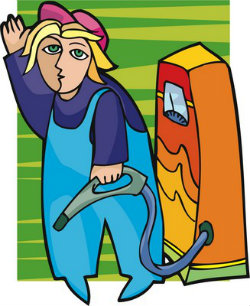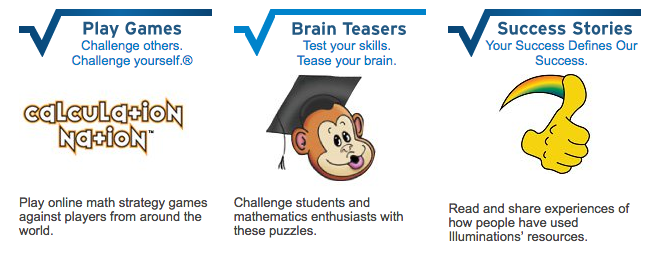6 Tips for Teachers If You’re Running on Empty
A MiddleWeb Blog
 At this time of the year, I always feel like I don’t have anything left in my tank. I’m running low on energy, ideas, and patience.
At this time of the year, I always feel like I don’t have anything left in my tank. I’m running low on energy, ideas, and patience.
In Alabama, we’ve begun the grueling standardized testing portion of the year, and we all know the demands that go along with that.
And yet, we still have those students who need us to continue to have the steadfastness and stamina to help them be successful. But how? Here are a few suggestions that have worked for me.
1. Be okay with taking a few minutes to talk to your students.

A fellow teacher reminded me this week that it takes time to develop and nurture relationships with our students. We can’t be so focused on our material that we forget that they are individuals with lives away from school.
2. Go to an extracurricular activity one of your students is involved with.
I tend to neglect extracurricular activities in the spring because I’m so busy with grades, reviewing, etc. But I find that if I make the time to be there my students appreciate it, and I always end up enjoying myself and getting an energy boost.
3. Spend “quality time” with your colleagues.

It may be that we all bring a dish from home and try to eat together (usually in shifts), or someone brings doughnuts and we talk for a few minutes in the break room. Whenever we have the opportunity to just talk, I always come away feeling more refreshed.
4. Try to remember that if you’re tired and struggling, your students are as well.
While what we are learning is important, students can suffer from burnout and fatigue. Just like we do. Acknowledging it may give us all a boost.
5. Do whatever is necessary to become excited about something you’re teaching.
I found a great article about unconventional quizzes on the NCTM website which I tried in my classroom: Unconventional Quizzes that Liven Up My Classroom by Susan Zielinski.
Specifically, I tried the Snowball Quiz that was mentioned in the article. I was completely unsure how it would go, but it actually went well. As a matter of fact, I plan to write more about it in a future blog post here. The idea is to be excited about something. Sometimes you end up trying things that don’t work, but other times you hit on something that’s a keeper.
6. Hunt for subject stuff that’s fun.
Whatever your subject, there are sure to be internet resources out there that can help you add a little fun to your classes. In math, here are places I always go when I want something extra.
1. Desmos – “Graph functions, plot data, evaluate equations, explore transformations, and much more – for free!”
2. lluminations from NCTM with lessons and interactives for students in Pre K-12
3. The MTBoS Search Engine: a search engine that only combs through Math Teacher blogs. Created by John Stevens, a technology coach for Chaffey Joint Union High School District in Ontario, CA. There’s a mix of grades and levels.
4. NCTM: The National Council of Teachers of Mathematics offers a range of lessons such as this mysterious middle school one, The Case of Mr. Donnelly and the Candy Jar Task.
If you have any other suggestions, please share!





































I love breakoutedu.com.The students get totally engaged in trying to solve the clues to get to the breakout box. There is so much teamwork and critical thinking involved in these group activities. (Editor’s note: To learn more about BreakoutEDU, including costs involved, read this post and the many comments attached at the Mighty Little Librarian blog.)
That is a great idea! I first heard about breakout at a professional development meeting, all the teachers actually played, it was so much fun!
I think getting together as a team would help give ideas to help make their subject more interesting. Piquing the interest of the students will get them wanting to learn the subject.